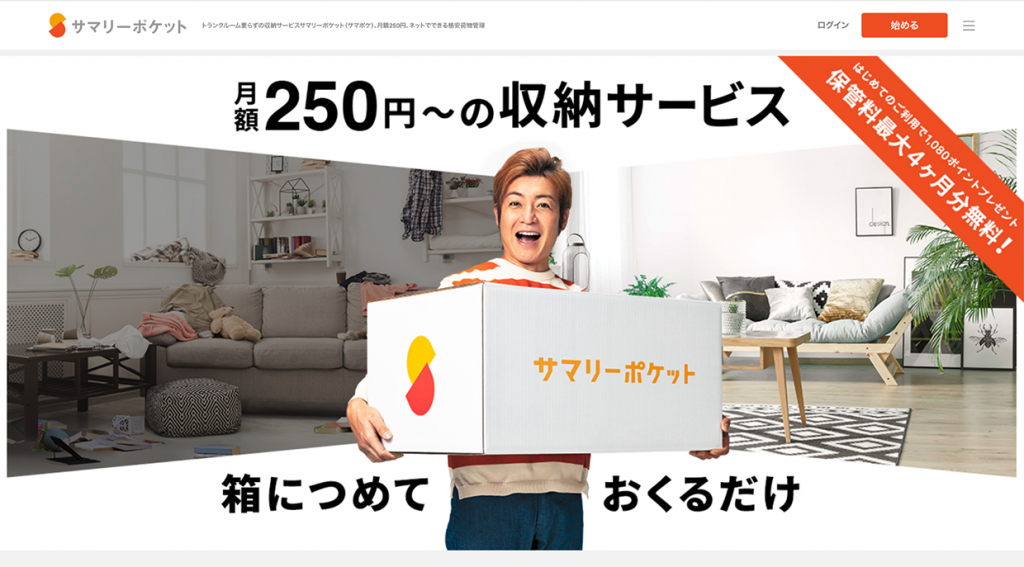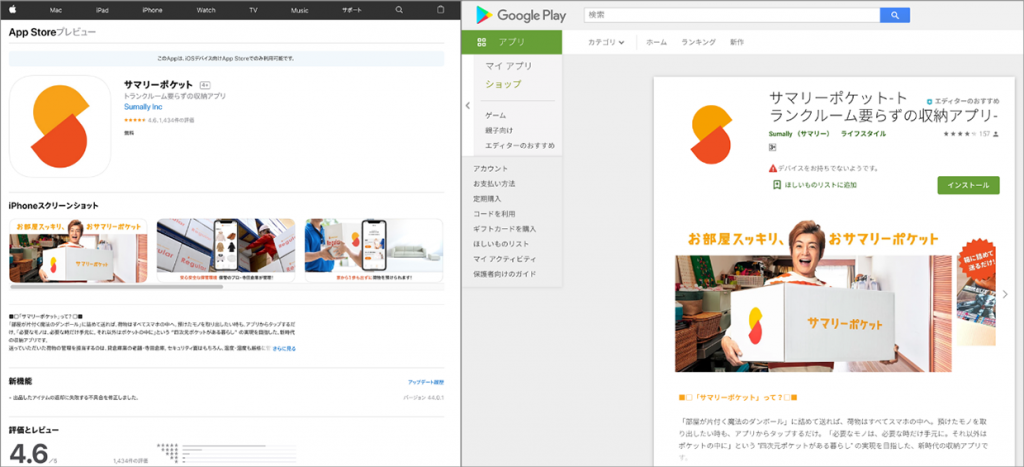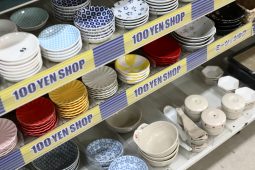Do you ever worry about having too many things you don’t need in your house? For example, clothes. Japan has four seasons. In winter, you won’t need your spring-to-autumn-clothes, and in summer, you won’t need autumn-to-spring clothes. Do you stuff it in your closet? Alternatively, do you throw it away, give it to friends, sell it on a flea market app or something else? What about books and manga?

That’s where Sumally Pocket comes in. Sumally Pocket is an online storage service both by web and app, where you can ask them to store anything you want.

Just five steps to be freed from possessions
Sumally Pocket can be used from its website, or as a smartphone app on iOS or Android.
Using it is very simple, and consists of these steps.
- Request a box collection online.
- Put your baggage in the box and file online for it to be collected.
- They come to your house to collect it.
- When you want it back, make a request online for the box to be sent back.
- The box you want will be sent back to you.
In particular, collection only takes two steps: Get a box, put things in it and ask to have it collected. Everything happens at your home.It’s just like having another closet.
By using this service well, you can be freed from possessions, from baggage-filled cluttered rooms, and not have to worry so much about storage space in choosing a house.
As an optional service, they’re also starting offers to clean clothes left with them, or take anything you don’t want and sell it on Yahoo Auctions for you. If you just leave it with them to make space and then decide you don’t need it, you can just sell it off online, which starts to change the whole concept of ’possession’.
The price is just the per-box monthly storage fee and shipping when retrieving it, which is easy to follow and understand.
Outsourcing the interior of your wardrobes and closets
There are several possible use cases. For example:
Clothes, mattresses
The most common use is to store out of season clothes until you need them. Mattresses and blankets change with the season too, so sometimes these are stored as well.Manga
You often read manga once and then don’t re-read for a while. That leaves piles of it building up in your house, and before you know it, your shelves are full. When that happens, you could take the ones you aren’t reading and store them on Sumally Pocket until you want them again.Shoes
Women, in particular, might have a few pairs of shoes they like; if you have more than fits in your room, why not store them?
The main uses I envision are something like these. Clothes, manga etc. might make up the bulk of it, as you can’t currently store anything larger, like home electronics.
Use of various technology
Sumally Pocket is run by the Japanese venture corporation Sumally, which is doing its best to work in other technologies. AWS, PHP, Go, Apache, nginx, MongoDB, Chef, Java, React Native and Swift all go into building the webpage, smartphone apps, infrastructure and so on.
In recent times, many businesses use the cloud for parts of the infrastructure, with heavy use of AWS and Microsoft Azure. This might teach more about the necessary infrastructure knowledge to work with the software as well. Part of me sees the appeal in joining a company like this to see and work with new technology.
Conclusion
Today I introduced Sumally Pocket, a service that changes how we look at ownership and space, and frees you from possessions. It’s a very practical service with many users, and I look forward to seeing how it develops. I can’t help being interested in companies like this that make big changes in how we approach daily life, too. As an engineer, I also notice the opportunities these technologies have for someone, like me.








